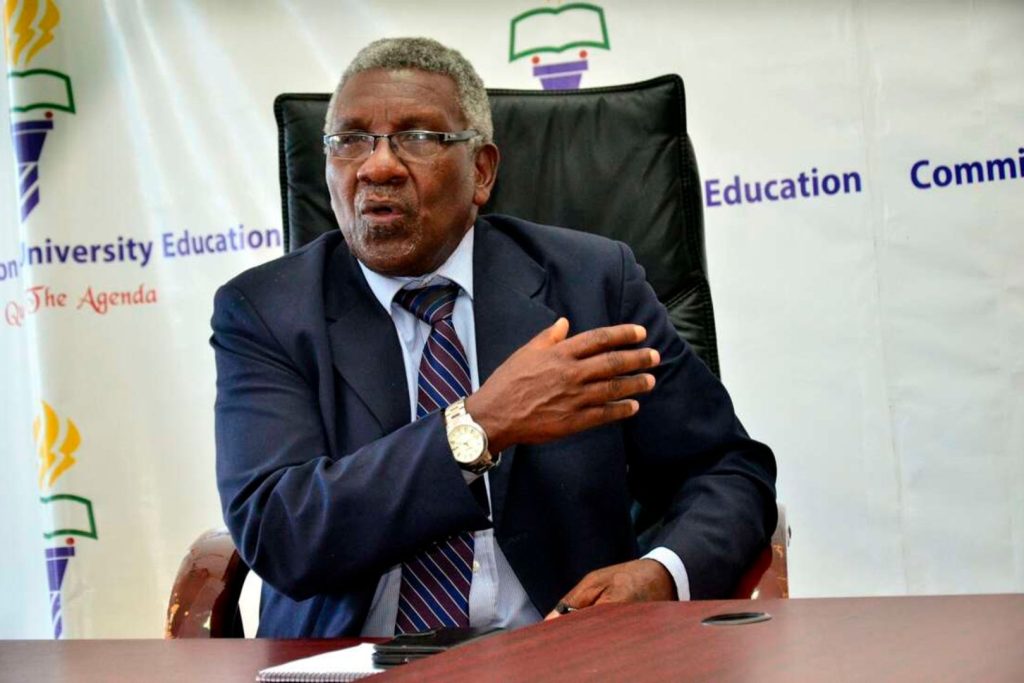The National Assembly’s Education Committee has raised concerns over the increasing number of unaccredited universities and the declining quality of higher education in Kenya.
In a meeting chaired by MP Julius Melly, committee members questioned the Commission for University Education (CUE) over reports revealing that at least 15 unaccredited institutions are currently operating in the country, issuing degrees illegally.
Members of the committee demanded answers from CUE Chairman, Prof. Chacha Nyaigotti-Chacha, and Commission Secretary and CEO, Prof. Mike Kuria, on what steps have been taken to address the issue of rogue universities and protect students from fraudulent degrees.
Prof. Kuria confirmed that CUE, in collaboration with law enforcement, has intensified efforts to crack down on illegal institutions.
He revealed that 15 unaccredited universities have been flagged, and two ongoing court cases involve the issuance of fake degrees.
“How many universities that offer fake degrees and PhDs have been shut down and taken to court?” asked Melly, questioning CUE’s enforcement efforts. He also sought clarification on the regulations governing foreign universities operating in Kenya.
In response, Prof. Kuria assured the committee that CUE regularly publishes lists of accredited universities and issues public warnings to guide students and parents away from unrecognized programs.
MPs, however, expressed dissatisfaction with CUE’s oversight, saying, “If we have unaccredited institutions awarding degrees illegally, then you are failing.”
They demanded to know the mechanisms in place to detect and stop malpractice, such as over-enrollment, shortcut graduations, and hiring unqualified staff.
The committee also raised concerns about the quality of education in many institutions, particularly in newer universities and those in rural areas with limited research output, inadequate infrastructure, and poorly qualified teaching staff.
MPs questioned what CUE is doing to manage the student-lecturer ratio and regulate student enrollment to ensure that universities maintain adequate staffing.
Prof. Kuria acknowledged that some universities have been flagged for non-compliance, adding that two cases involving illegal graduation ceremonies are currently in court. He also admitted that gaps in the accreditation system, dating back to the implementation of the Universities Act in 2012, have contributed to discrepancies in university records but assured MPs that CUE is working to address these issues.
The Commission also called for policy changes to strengthen regulatory oversight, manage student enrollment, and maintain international academic standards. Prof. Kuria noted that the number of universities in Kenya has increased significantly over the past two decades, from 33 in 2012 to 67 by 2025.
“By 2025, we will have 67 universities (38 public and 29 private) and 13 others at various stages of accreditation,” he said. “This marks a 41% increase in just 20 years, making Kenya one of the top five countries in Africa for university numbers, following Nigeria, South Africa, Egypt, and Ghana.”
The Committee on Education has directed CUE to provide a detailed list of all accredited universities for further scrutiny.
Email your news TIPS to Editor@Kahawatungu.com — this is our only official communication channel


